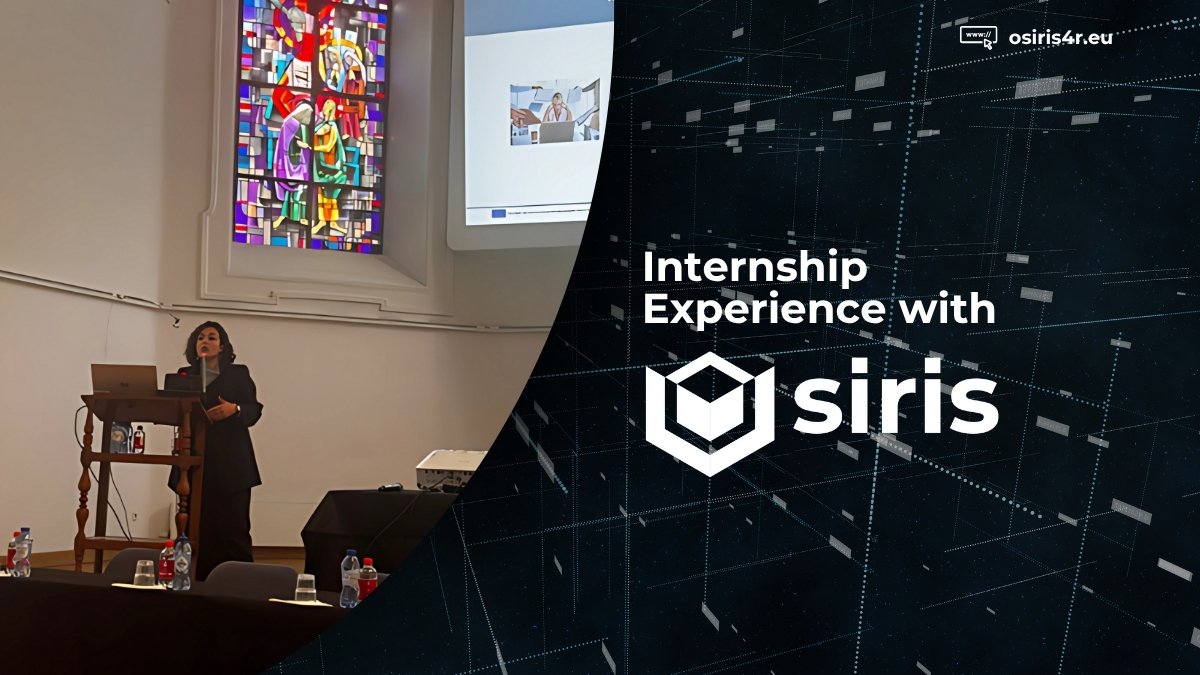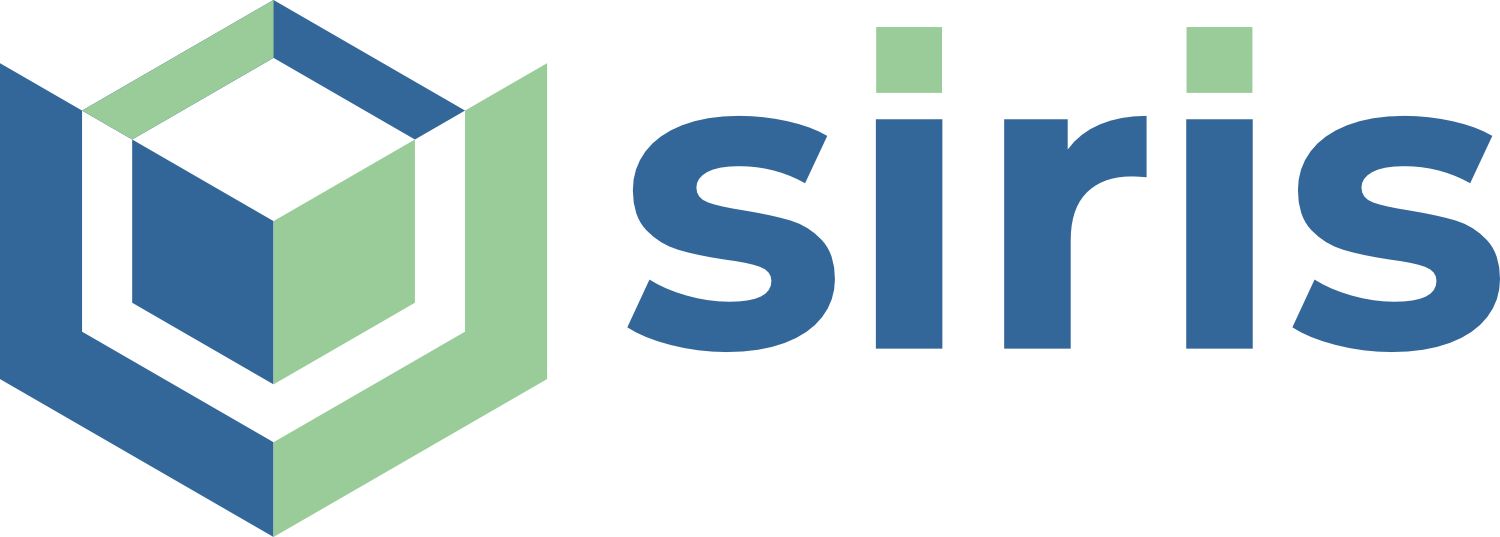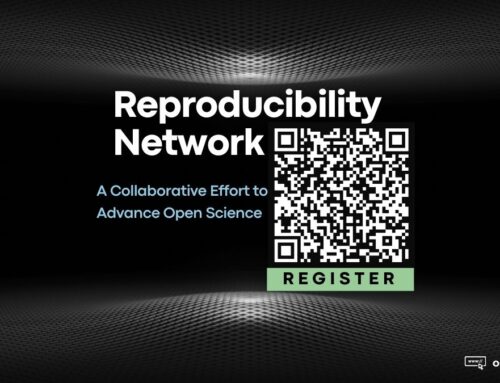
Paula Muñoz Teno, a psychology graduate from Spain, joined the OSIRIS project for a three-month Erasmus+ research internship hosted by our partner organization KU Leuven in Belgium. Under the guidance of our WP2 Lead Dr. Veerle Van den Eynden and Patrick Onghena. During her internship, she collaborated on Work Package 2, exploring the barriers and enablers of research reproducibility. Driven by her passion for open science and her concern for the challenges facing the scientific community, Paula immersed herself in qualitative research, case study writing, and international collaboration to contribute to more transparent, equitable, and reproducible scientific practices.
Dive into her story to discover how this experience shaped her skills, mindset, and commitment to improving science from the inside out!
There are a lot of ways to make a positive impact on the development of the scientific community. I chose the OSIRIS project to do it. Do you want to know why? This is my story:
Presentation and Motivation
My name is Paula Muñoz Teno, and I am a psychologist from Spain. Last year, I completed my bachelor’s degree in psychology, and I had no idea what to do next. However, one thing I was certain about was my frustration with the state of the scientific community: the lack of transparency, reproducibility issues, inequalities among researchers, privatisation of information and the disconnect between academia and society.
At the same time, I loved research and have always believed that the development of science is directly related to our attitude as a society and as individuals. Therefore, I believe it is essential to take an active, critical, and reflective role in its advancement. That is why I decided to do my part to improve the situation by undertaking a research internship in the OSIRIS project.
Why the OSIRIS project?
I chose this research project because it aligns with my passion for improving scientific practices, particularly those related to open science and reproducibility. In addition, the project’s goal of promoting a collaborative, transparent and equitable community to improve those practices is an aspect that I deeply valued.
Another aspect that I considered was the OSIRIS project’s transversal, holistic and integrated perspective to do research. It takes into consideration cultural, environmental, institutional, and personal variables and their interactions to understand both challenges and incentives to promote reproducibility. This perspective allows for designing effective and feasible interventions to enhance reproducibility through open science using the potential that already exists in the research landscape.
Finally, I thought it was a brilliant opportunity to gain more experience conducting qualitative research and improve transversal competencies such as communication, critical capacity and organisation skills by working with professionals from the OSIRIS project.
Personal experience and tasks
I collaborated with the KU Leuven team from February 21st to May 15th. The KU Leuven team, composed of Patrick Onghena, Veerle Van Eyden, and Magdalena Kozula, led Work Package 2 (WP2) of the OSIRIS project. This work package aims to empirically assess the barriers and facilitators that enhance research reproducibility. During these three months, I was involved in various research activities within WP2, supervised by Veerle Van Eyden and Patrick Onghena.
Firstly, I finalised three interview transcripts that aimed to understand researchers’ perspectives on reproducibility and the barriers and facilitators that influence their research practices. One particularly remarkable insight was the impact of the research environment on how researchers perceive reproducibility. For instance, when institutions lack resources, reproducibility is often deprioritised due to more pressing concerns related to career development, such as the “publish or perish” culture, securing funding, and balancing teaching responsibilities. This understanding is crucial to avoid blaming individuals and instead focus on addressing the structural barriers.
Additionally, I conducted the coding and analysis of 145 papers, identified during a scoping review, using NVivo software. These papers provided empirical evidence on facilitators and barriers to enhance reproducibility. On the one hand, it was fascinating to realise the different barriers and facilitators that various stakeholders encounter in promoting reproducibility in research practices. Again, the impact of environmental variables on reproducibility was remarked. Also, it is important to highlight that papers focused on reproducibility proxies such as data sharing, transparency, or preregistration. There is a lack of evidence regarding reproducibility barriers and facilitators. On the other hand, I am very grateful for the opportunity to use NVivo and learn more about qualitative methodology.
I also participated in OSIRIS discussion meetings. This activity allowed me to learn more about the functioning of a research team, consider diverse perspectives and strategies to address reproducibility challenges, and improve my organisational, commitment, and communication skills.
Furthermore, I worked with Veerle Van Eyden to write two case studies as part of the “Ten Tales of Reproducibility” initiative. “Ten Tales of Reproducibility” collected and highlighted interesting examples of practices to promote reproducibility in research by different stakeholders. The practices were identified through OSIRIS research activities, including scoping reviews, interviews, focus groups, and policy audits. It was very enriching to discover how many stakeholders, such as funders, publishers, and researchers, have been developing practical, feasible and effective solutions to address the lack of reproducibility in research. These practices could be valuable models for the broader research community.
Finally, the OSIRIS project team gave me the opportunity to present “Ten Tales of Reproducibility” at KU Leuven’s Open Science Day, which was held on May 6th. Attending this conference allowed me to learn more about Open Science practices and the main challenges to improving them. Giving the presentation was a challenge, but it allowed me to improve my self-confidence, my communication skills, and my knowledge about reproducibility.
Conclusion
This experience has been a significant challenge. It was my first time doing most of the tasks that I have described. Nevertheless, the technical and personal competencies that I have improved outweigh any insecurities, fears, and obstacles I faced.
Moreover, it was truly inspiring to see how my supervisors and the whole team work. They are an example of commitment, collaboration, and motivation to improve reproducibility in science, but also science itself.
My most precious learning from this experience has been that uncertainty is going to be there because science is not perfect, and researchers are human. Therefore, there is not a unique way to solve problems, there is not a unique answer to a specific question, and there are things that escape our control. Mistakes and challenges are part of our journey. The real challenge is how we learn from them; how flexible we are in solving them, and how we work together to create a culture that values transparency, collaboration, and continuous improvement. Because, in the end, there are a lot of ways to make a positive impact on scientific community development.
Stay tuned for updates on other OSIRIS activities! Visit our website to read our blogs and events section and follow us on social media to discover what’s new and how you can get involved!









Keep In Touch